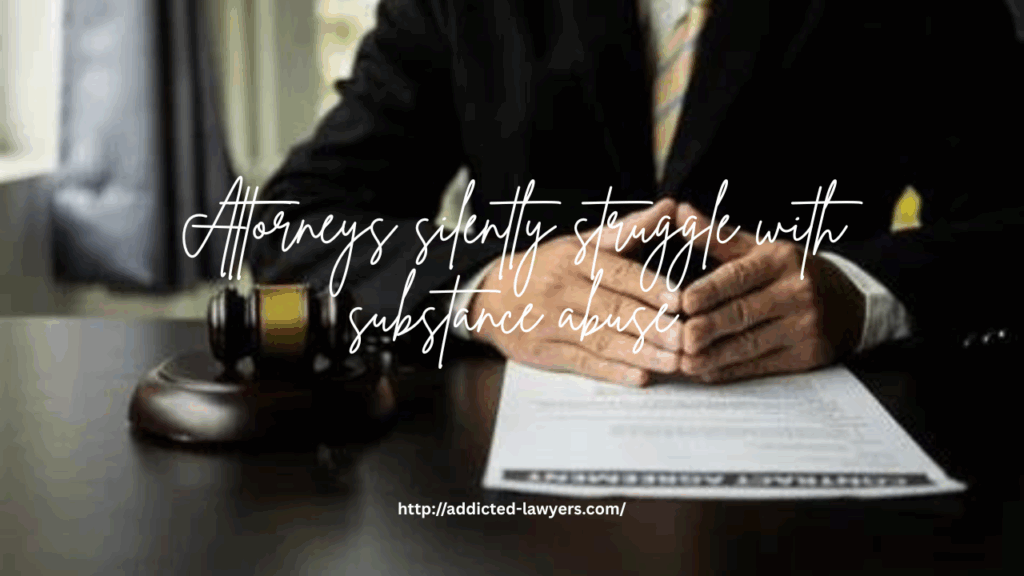
Success in the legal profession often comes at a high cost. While lawyers are celebrated for their intellect, resilience, and courtroom victories, the hidden toll of maintaining this image can be devastating. For many, the journey to win cases and build prestigious careers leads to a personal crisis—addiction. Despite their achievements, countless attorneys silently struggle with substance abuse, caught between the expectations of their profession and the reality of their mental health.
The Pursuit of Victory
In law, winning is everything. Lawyers are trained to advocate fiercely, outmaneuver opponents, and serve their clients with relentless dedication. This drive to succeed, however, often requires intense hours, emotionally taxing cases, and immense personal sacrifice. From managing complex litigation to meeting demanding billing targets, the legal profession offers little room for rest or recovery.
The stress of always needing to be “on” can lead many lawyers to seek solace in substances. Alcohol becomes a common escape, frequently consumed at networking events, firm celebrations, or after long workdays. Prescription drugs—like stimulants for focus or anti-anxiety medications for stress—are also misused to keep up with the relentless pace.
The Descent into Addiction
Addiction doesn’t announce itself with flashing warning signs. It creeps in subtly—an extra drink to unwind, a pill to get through the day. Over time, these coping mechanisms become crutches, leading to dependency. What begins as a tool to manage stress can quickly evolve into a habit that controls every aspect of a lawyer’s life.
Unfortunately, the legal profession’s culture often reinforces silence. Lawyers are expected to be problem-solvers, not to have problems of their own. Admitting to substance abuse can feel like admitting defeat—a dangerous notion in a field that equates vulnerability with weakness.
As addiction takes hold, it can erode professional performance, strain relationships, and jeopardize careers. Impaired judgment, missed deadlines, and ethical lapses may result, leading to disciplinary actions or disbarment. Yet despite these risks, many lawyers continue to suffer in silence, fearing the consequences of seeking help more than the consequences of addiction itself.
Support and Recovery
The tide is beginning to turn. More firms and legal organizations are recognizing the need for mental health support and addiction recovery resources. Lawyers Assistance Programs (LAPs) provide confidential help tailored to the unique needs of attorneys, offering counseling, peer support, and access to treatment.
In addition, wellness initiatives are gaining traction. Firms are increasingly promoting healthier work-life balance, encouraging open dialogue about stress and mental health, and providing resources like therapy, mindfulness training, and employee assistance programs.
Redefining Success
To combat addiction in the legal profession, we must redefine what success looks like. Winning cases should not come at the expense of losing oneself. Legal culture must shift from glorifying overwork and perfection to embracing balance, empathy, and well-being.
Conclusion
Lawyers are often seen as invincible advocates, but behind their courtroom victories may lie a personal battle with addiction. By acknowledging the pressures of the profession and providing meaningful support, the legal community can help its members win not only in court, but also in life.
